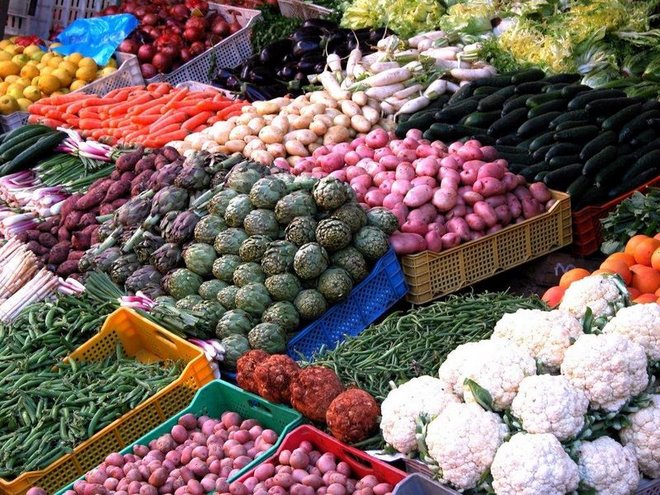I started to call this post "My Evolution as a Dieter," but that is inaccurate, because many people would say I am not 'on a diet,' strictly speaking, and also because much of this applies whether I am concerning myself with calorie counts or not. It's about a lifestyle change--that over-utilized phrase that has actually applied to my life for the last few years.
So . . .
I lost weight in high school. It was 10th grade. I couldn't have told you much about nutrition at the time. My mother made meat- and carb-heavy dinner meals, which I ate heartily. Yet I lost weight, because I thought I was in love (certainly, I was in lust), and I only saw the object of my affection at lunch. Lunch? Who cares about food? Flirtation was far more important. So instead of pigging out on ice cream or chips or a school-lunch pizza, every day, I would manage to eat a white-bread sandwich with a single slice of American cheese and a tiny smear of mayonnaise, washed down by a small carton of Tropicana OJ. Then I would--in all my horny glory--whisper in the ear of the boy I was devoted to, with my lips touching his ear; or hold his hand; or trace my fingers along the prominent veins in his well-muscled arms. He would tease me; we would giggle together. For once in my life, I had the boy all the girls wanted, and they watched me with envy. Pheromones, adrenalin, endorphins--these kept the hunger at bay. There was no point to my weight loss, just the joy of inhaling this boy.
Things ended when he realized my horniness wouldn't extend to sleeping with him--or getting him off in any way, actually. Honestly, it didn't cross my mind--we didn't have much of a relationship outside of school, and when we did, it wasn't in private. So it was never so blatant that our lack of make-out sessions spelled the end, but that's what the details of our fading relationship--and the girl he 'dated' after me--pointed to. Perhaps I was a cock-tease--it's very possible. I couldn't care less (and wouldn't have then). But certainly, when the relationship (such as it was) was over, food carried appeal again. I was eating more, and the weight came back on . . . and then some.
In the morning, I would have something like Carnation Instant Breakfast for breakfast--or something like Hostess donuts, if they were available. For lunch I had the gross, greasy school lunch or took my own, which usually involved potato chips and dessert as well as a sandwich. After school, I ate a snack: Ritz with squeezy cheese, or a bowl of ice cream, or a Hot Pocket. We ate a late dinner at night, because my father often wasn't home from work until 9. Here are some typical dinners we would have: mayo-based chicken salad--gobs of it--on white bread with lettuce, served with potato chips; tacos with lots of ground beef, cheese, sour cream, a little salsa, and a little lettuce; oven-fried chicken with roasted potato wedges, dinner rolls, and frozen broccoli cooked until it drooped; beef stew with carrots, potatoes, and onions in it, with sides of refrigerated-dough crescent rolls and canned green beans; hamburgers with deep-fried french fries. I think you get the idea. My mother did the best she could at serving six people dinner night after night while working full-time, and many of the meals were delicious, but our meals weren't terribly healthy. Oh, and they were often followed by dessert: Breyer's ice cream, Oreos, a piece of cake from a cake we'd bought at Sam's Club. Oh, and we went through Coke like it was going out of style; 2 liters probably didn't last my family more than two days, if that. I drank Coke products, whole milk, and OJ--that was pretty much it. I hated water.
Still, I was physically active, so I wasn't huge. I was between a size 10 and a 12--a place I'd LOVE to be now!
I didn't really worry about my weight until partway through college, when all the late-night pizza or quesadilla fests had taken their toll. Plus, I had done a lot of emotional eating. Suddenly I had rolls of fat not only when I was sitting down but standing up as well. Not good. I wondered what the trick to losing the fat was. I tried cutting my fat to 25g a day--but that was in the Snackwell days, so I thwarted myself with low-fat foods that didn't taste very good but were high in sugar. I tried limiting portions; I tried developing a running habit (it never took hold). I tried WW--two or three times. I tried cutting carbs--Sugar Busters and South Beach--though nothing as extreme as Atkins.
Through all of this, I developed a Diet Coke habit, as many dieters tend to do. I also used first Equal and then Splenda in my foods. I ate a lot of foods with artificial sweeteners. I did what I could to both diet, as I see it now, secretly cheat the diet. For example, I might have something like this as a meal:
low-cal bread with roast beef, tomato, lettuce, reduced-fat cheese, and low-fat mayo
1 oz. of baked chips
1 frozen icecream treat made with Splenda
What happened with dieting with meals like that is that I ended up hungry a fairly short time after I ate. And I wanted to eat three frozen treats, not just one, to make up for the lack of flavor in that one. Occasionally I gave in to that urge.
Then a doctor told me my high consumption of artificial sweeteners was causing stomach problems. I cut them out cold turkey. (You would too if you realized they were the source of such stomach pain as I had.)
Around the same time, my hypothyroidism was discovered, and I started taking pills to prop up my metabolism and my mood. It helped some, but didn't get me dropping any pounds.
Then I got ovarian cancer, and I spent two years dealing with that. In the midst of that, I did an enormous amount of research into what I could change to fight cancer and/or prevent its return. I started eating organic food, and I upped my veggie quotient and reduced my consumption of super-processed foods. I increased my fiber intake.
But I didn't really go far enough. My weight stabilized but didn't drop.
I tried the Oprah diet she put in the magazine a couple of years ago. I was eating a lot of acidic foods, and I got really sick.
Again, my body tried to clue me in--this time with the development of interstitial cystitis (and possibly some IBS as well, I've learned now). And I was in the worst 10 percent of cases--I had developed Hunner's ulcers in my bladder. I was in pain nearly constantly. I was so glad my cancer hadn't returned in my bladder, but I cried and cried over my diagnosis. I read that over 50 percent of people diagnosed with IC end up disabled from bladder problems.
I'm a researcher by nature, so I went back to researching. And I learned that I needed to cut out foods with artificial preservatives, artificial colors, artificial ingredients as well as any foods that were acidic. I also needed to figure out random foods that were bladder triggers for me, such as blue cheese and peanut better, and get rid of those as well. I did it--all of it. At first it was a difficult switch, but I did it. No more chicken salad (no mayo), no more foods preserved with citric acid, no more . . . well, lots of things. Most of those ready-to-eat meals went out the window. Most of my Betty Crocker-type cookbooks, I now noticed, used largely processed ingredients. I gave those cookbooks away.
What I was left with was, for the most part, whole foods--foods that have not been heavily processed. Vegetables emerged in my diet quite heavily. Most fruits still hurt me to eat. I bought freshly baked bread or made it myself. I got blocks of cheese and grated them myself.
I gave up caffeinated drinks; I gave up carbonated drinks. Basically, I gave up all drinks except alkaline water, an occasional glass of German Riesling (not a trigger for me, for some reason), and an occasional beer (which was a trigger at times).
I gave up trans fats, which are horrible for us anyway and should be avoided whenever possible.
I visited a nutritionist--as a b-day gift from my mother--who told me I was eating really well, and that for weight loss, I just needed to watch my portions. She seemed amazed at how much I knew about nutrition. She also informed me that an overload of meat (more than 3 oz. a day) would cause an additional rush of acid in my system--info I had not yet known. So I tried cutting my meat portions down to 3 oz. a day, which turned into, instead, me learning to cook vegetarian food from around the world and eat that at home. After some more work, I learned to incorporate more than 3 oz. of vegetarian protein into my daily routine, because veggie food without enough protein leaves me hungry and listless too long between meals.
I went a year with making only dietary changes. I saw some progress in my condition, but I was still experiencing a lot of discomfort. I visited a new urologist who told me she thought a very old form of antihistamine would have me experiencing great improvements in my condition. Having read a lot of people's experiences with IC meds online, I was skeptical, but when she told me I could get to the point of regularly having sex without pain? Well, that sold me on at least trying it.
So I kept doing my food thing, and I started on the new meds, which made me utterly exhausted for the first several weeks. Even now, I am sluggish in the mornings after taking the medicine every night. And my dreams are very strange.
BUT. But--I have been able to add some foods back into my diet without an increase in pain. Fruit has made a return--even citrus fruit in small doses. I can eat small amounts of yellow tomato sauce, though red tomato sauce still seems to be a trigger. I can eat sourdough bread in small portions. I can eat asparagus again, and fresh asparagus is truly one of my favorite foods. Each of these additions has made me more joyful about my meals. Each addition expands my food repertoire and excites me. As for the really processed foods? Honestly? I don't want them back in my diet.
So now, my husband and I buy mostly unprocessed food--fresh, organic, local foods from the weekly farmer's market, supplemented by organic vegetables and fruits from Whole Foods . . . and some processed foods, but we try to keep those to a minimum and make it ones that still retain some nutritional value: pesto, taco shells, whole-grain pastas and breads, curry sauces, etc.
I used to wonder what vegetarians could possibly eat. As many people do, I pictured only vegetables (mainly steamed)--not a bounty of different vegetables in fabulous sauces, on grains, and in soups and stews. I didn't know the wonder of well-made tofu until a couple of years ago. I had no idea the variety and flavor of beans, of tempeh, of seitan. Now I know that much of the world eats vegetarian food a majority of the time, and being in a land of plenty, I can choose to make meals from many traditions: Mexican, Italian, Moroccan, Indian, Thai, Japanese, French, Jamaican. My options are endless, and they are all wonderful.
I've also learned that, for me, the answer to the question of healthy eating is to eat in a way that satisfies me without trying to play into some system of fake versions of high-calorie foods. That doesn't mean that a reduced-fat recipe can't be great; it can, and there are many wonderful ways to reduce fat and calories in recipes naturally. But if I am going to be eating healthfully, I shouldn't try to fill my plate with foods made from lab-created chemicals that are designed to trick my palate into thinking I'm eating something I'm not. It never really worked when I was trying that, and it left me without the proper nutrition that I needed to keep my body really healthy. To ward off cancer, prevent heart disease, keep my stomach and bladder healthy, and put myself at a reasonable weight, I need
reasonable portions of organic vegetables and fruits from a huge spectrum of colors;
cooked in healthy oils, when needed;
served with vegetarian protein in the form of nuts, beans, tofu, and similar foods;
using fantastic spices and seasonings throughout the meal liberally;
served over or with whole grains;
and including only the occasional indulgence in meat, only when I eat out (if ever).
Oh, and the inclusion of small desserts matters too--greatly!
For dinner, I find myself looking forward to things like our rich and comforting tofu-and-veggie masaman curry over brown rice, or our easy vegetables roasted with rosemary and olive oil served with garlicky greens and beer-baked beans. For lunch, I find it much more filling and satisfying to eat a hearty, healthy serving of our vegetable pot pie leftovers than I would find a similar-calorie, but tiny-portioned, Lean Cuisine meal. For dessert, I find an ounce of rich, European dark chocolate more satisfying than a Splenda-based frozen dessert.
I'm certainly not perfect at making healthy foods; we still eat too much cheese, and I have to watch my use of olive oil, which, while healthy, is very high in calories. But one thing that I've learned is that, for me, feeling and being healthy comes with a back-to-veggies approach to eating.
(P.S. I also know that eating healthy is only half of the equation, and I'm working on the moving-my-butt-lots-more thing!)





















